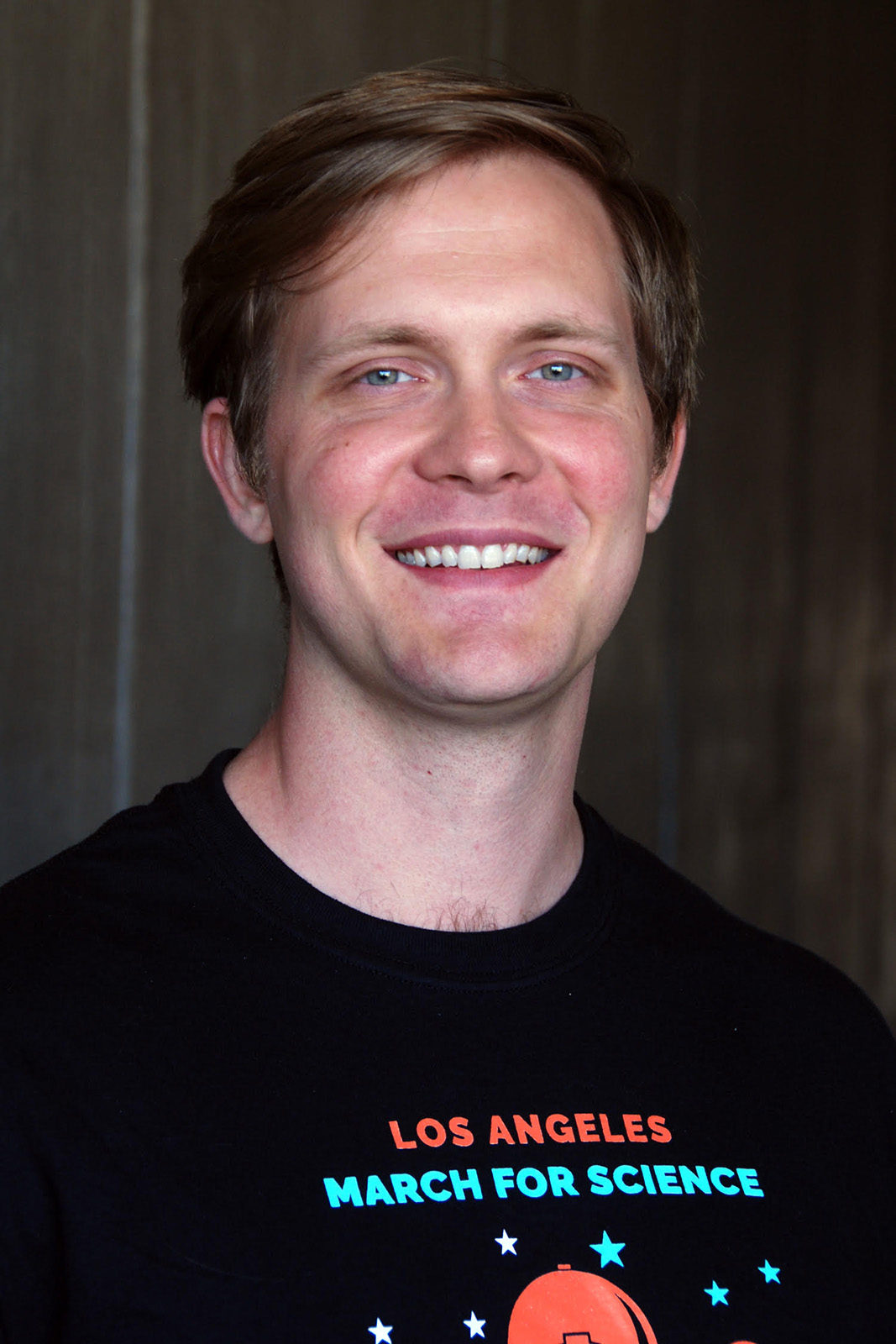UCLA scientists organize march to educate public on funding for sciences

Alexander Bradley, a biochemistry, molecular and structural biology graduate student, is organizing the March for Science in Los Angeles on April 22. (Courtesy of Alexander Bradley)
By Deanna Necula
April 14, 2017 12:17 a.m.
UCLA scientists are organizing a March for Science in Los Angeles to foster communication between scientists and the general public.
The March for Science, which will take place April 22, aims to bring thousands of participants together to educate people about underfunding of the sciences and encourage greater involvement in science.
The primary March for Science will be held in Washington, D.C., on the same date, with several other satellite marches nationwide.
Alexander Bradley, a graduate student in biochemistry, molecular and structural biology and lead organizer of the Los Angeles march, said he was inspired to organize the LA satellite march after speaking with an undergraduate student.
“We were having lunch, complaining to each other about the current funding climate and the way science is misperceived by the public,” Bradley said. “At one point, he saw his friend had invited him on Facebook to join the March for Science (in Washington, D.C.), and it just hit me like a ton of bricks – this is an opportunity to do something about (these issues).”
As soon as he returned to his lab after lunch, Bradley started a Facebook group to organize volunteers for an LA march.
Bradley said that though there are between 60 and 80 people currently scheduled to volunteer at the event, he received over 600 volunteer applications. He added he expects 50,000 to 100,000 people to attend the march, which will take marchers from Pershing Square in downtown LA to City Hall, a roughly mile-long trek.
[Related link: UCLA students protest Trump at Los Angeles Women’s March]
Bradley said he and the other organizers will also hold a science exhibition before and after the march to foster interest in the sciences and provide attendees with a tangible outlet for action.
“The exposition is looking to take the energy and excitement people will experience coming to the march and direct that energy somewhere productive,” he said.
He said the exposition will host professional science policy advocates that work to seat scientists in political arenas. Other presenters will lead interactive science demonstrations.
For example, Gianmarc Grazioli, a postdoctoral researcher at the University of California, Irvine will perform versions of his science YouTube videos, including a spinoff of “Let It Go” from “Frozen” about the principles of thermodynamics.
Andrea Hadjikyriacou, a graduate student in chemistry and biochemistry and social media coordinator for the march, said she was recruited to the LA march after Bradley asked her to manage the event’s social media campaign.
“I feel like the reason we’re in this (funding) predicament is because scientists can’t often communicate the importance of their research to the general public,” Hadjikyriacou said. “We have to speak up and say how important science is to keeping America a leader in research.”
Hadjikyriacou said one of the goals of the March is to encourage more scientists to become involved in directing public policy.
“You have to base policies on facts, on science,” she said. “You can’t just lock yourself away in the lab – we want scientists getting involved in the (political) decision-making.”
Dario Ringach, professor of neurobiology and psychology, said one of the catalyzing issues that prompted him to participate in the March for Science was the staunch opposition toward animal research.
Ringach said that in the past, professors at UCLA who used experimental animals in their research have received death threats, had their cars firebombed and their homes flooded by disgruntled opposition.
Ringach said many people do not understand that research involving animals is carefully monitored to ensure humane treatment, and funding is only granted if the research is shown to be of valuable medical consequence. He said the opposition he encountered to animal research prompted him to push more scientists to engage with the general public.
“The opposition is mostly a misunderstanding of what the work actually involves,” Ringach said. “It takes a scientist to explain to the public why such research is important.”
He said he thinks the march will encourage more scientists to communicate their research and alleviate the many disconnects in knowledge he has observed between the general public and scientists, including those involving climate change and child vaccinations. In particular, he said he thinks the sense of community the march will generate will inspire scientists to become involved with science communication.
Ringach added he hopes to see the movement grow to include academics outside the sciences, whom he said have important contributions to make because they may hold differing views on a wide range of topics.
“Every scientist should be inspired by the fact that they’re doing work that will lead to better lives,” Ringach said. “It’s a civic duty to take part in discussions about the role of science in daily life.”

